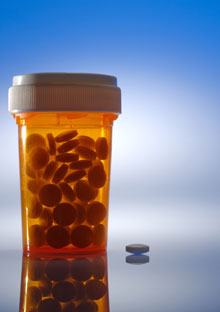The Drug Detectives

Photo: Nicholas Eveleigh/ Getty Images
Women who make sure your medication is safe.
No one wants to take a pill that won't work or—worse—is harmful. But who can judge good medicine from bad when today's wonder drugs so often become tomorrow's pharmaceutical mistakes? We spoke to three women who investigate the tablets and capsules we swallow in the name of health.Marian McDonagh
Principal investigator, Drug Effectiveness Review Project, Portland, Oregon
McDonagh spends her days sifting through the available data to see how a new drug stacks up against others in its class: Is it more effective? Is it safer in the long run?
When McDonagh is surprised, it's not usually by something she finds but rather by something she can't find—like studies showing long-term safety for kids taking ADHD drugs. Also lacking, she says, is hard evidence that ADHD drugs improve academic performance. "Do the kids keep up with peers as they advance through school, so they graduate at the same rate?" she asks. She calls the data "abysmal."
McDonagh admits she's now a skeptic about new drugs, which aren't necessarily superior to what's already on the market. Check reports on science-backed Web sites like ohsu.edu/drugeffectiveness, www.fda.gov/cder, and cochrane.org to see if there really is a difference in results between the new drug and others in the same class. Also note how long the pill has been studied; if it's less than a year, some side effects may not yet be apparent and you could be safer with medications that have been on the market awhile.
As a reminder, always consult your doctor for medical advice and treatment before starting any program.



